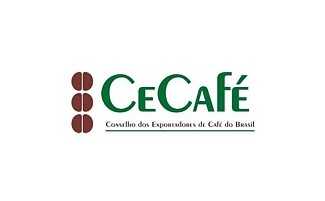The Digital Coffee Farmer program, a project created ten years ago by Brazilian Coffee Exporters Council (Cecafe) –, to promote the digital inclusion of small coffee producers in Brazil, plans to have 1500 rural producers trained in different regions of Brazil during 2016.
Since the program was created, it has already trained 2000 small coffee producers.
“Since last year we seek to further improve this project and we have established a partnership with the Sustainable Coffee Program, of Global Coffee Platform, expanding the scope of action”, says Luciana Florêncio, Executive Director of Cecafe.
“In addition to digital inclusion, we also disseminate good agricultural practices that emphasize sustainability”.
This partnership allowed Cecafe to sign cooperation agreements with the extensionists who make available agricultural technicians to teach during the courses, and to train coffee farmers, with emphasis in sustainability actions for the Brazilian coffee crops.
Currently the project counts with the following partnership of EMATER-RO, EMATER-MG, Incaper, Hanns Neumann Foundation, Ifes-Agrifes, Coocapec and Cooxupé, comprising 45 municipalities in the main producing states (Minas Gerais, Espirito Santo, São Paulo and Rondonia).
The Digital Coffee Farmer program was developed focused on family agriculture, small producers or rural workers in major coffee producing regions.
Its purpose is to stimulate digital inclusion, teaching rural producers how to use computers, and providing basic notions of access to the web as a tool for their work in the field and for managing the properties.
Coffee producers learn how to use digital tools to obtain information about climate, prices, markets, production techniques and good agricultural practices, helping them to grow healthy products, free of contamination (physical, chemical and biological) and, consequently, contributing to increase their business profitability, ensuring environmental sustainability and quality of life of the rural populations in general.
The 13th edition of the Digital Coffee Farmer Program held in the first half of 2016 had the participation of 784 farmers and farm workers in 42 municipalities in key states coffee producers, Minas Gerais, Espirito Santo, Sao Paulo and Rondonia, covering a total area of 17 thousand hectares of coffee.
Most students were owners or workers of small and medium-sized coffee plantations with up to 200 hectares and an average age of 40 years.
The course also included the participation of women (30%) and young people aged from 15 to 30 years (40%). Over 40% of producers formed by the course have some kind of certification, the main were FairTrade (11%), Certifica Minas (4%), 4C (4%) and RainForest Alliance (1%). There were four rural field days in Sao Paulo, Minas Gerais and Rondonia, aggregating 148 coffee farmers.
The program has contributed to the daily routine of the famers enrolled in the course with immediate positive results.
According to Luciana Florêncio, “in the Coqueiral region (Minas Gerais) alone, while taking the course, eight septic tanks were installed, three producers have already adapted their structures to correct store pesticides and the majority are now using a computer, which was idle, to register their costs”.
















